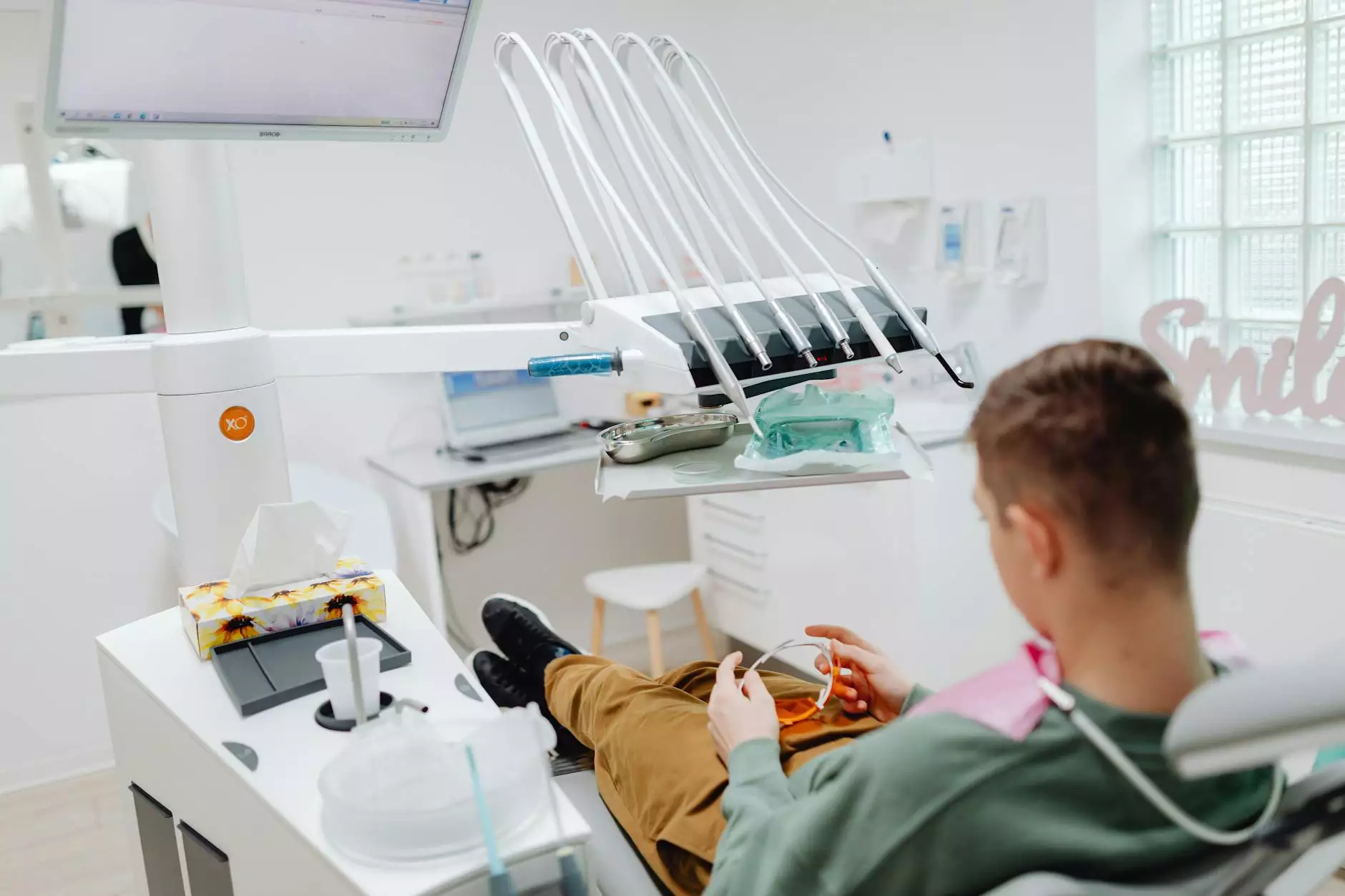Transformative Impact of Dental Crowns: Before and After

When it comes to dental restoration, dental crowns play a pivotal role in improving both function and aesthetics of your teeth. For those considering this treatment, understanding what to expect before and after getting a crown can be incredibly beneficial. Let's dive deep into the realm of dental crowns and explore their transformative effects, highlighted by compelling dental crowns before and after stories.
Understanding Dental Crowns
Dental crowns are custom-made caps that cover the entire tooth. They are designed to restore a tooth's shape, size, strength, and appearance. Crowns can be made from various materials including metal, porcelain-fused-to-metal, all-porcelain, or resin, allowing for versatility depending on the individual’s unique needs.
Reasons for Getting Dental Crowns
There are numerous reasons why someone might consider dental crowns, including:
- Protection of Weak Teeth: Crowns are ideal for safeguarding teeth that have been weakened by decay or trauma.
- Aesthetic Improvement: They can greatly enhance the appearance of discolored or misshaped teeth.
- Support for Large Fillings: When a tooth has a large filling, a crown can provide additional support and strength.
- After Root Canal Treatment: Crowns are often placed on teeth that have undergone root canal treatment to restore their function.
- Bridging Gaps: Crowns can serve as anchors for dental bridges, filling in gaps where teeth are missing.
The Process of Getting Dental Crowns
Consultation and Preparation
The journey to a beautiful smile often begins with a consultation. During this visit, a dentist will assess your dental health and recommend whether a crown is suitable for you. This may involve:
- A full dental examination, including X-rays.
- Discussing your options for crown materials.
- Outlining the procedure and what to expect.
Creating the Crown
After the initial consultation, the dentist will prepare the tooth to receive the crown. This involves:
- Removing any decay or damage from the tooth surface.
- Shaping the remaining tooth structure to ensure a proper fit for the crown.
- Taking impressions to design a custom crown that fits perfectly.
Temporary Crown and Final Placement
While your permanent crown is being crafted, a temporary crown is usually placed to protect the tooth. On your follow-up appointment, the dentist will:
- Ensure the crown fits correctly and make any necessary adjustments.
- Bond the crown to the tooth using dental cement.
- Check your bite and make sure everything feels comfortable.
Dental Crowns Before and After: The Transformation
The dental crowns before and after pictures often tell a story of dramatic improvement. Many patients experience:
- Enhanced Appearance: Crowns can mimic natural teeth closely, resulting in a beautiful, uniform smile.
- Boosted Confidence: With improved aesthetics comes increased self-esteem and confidence when speaking and smiling.
- Restored Functionality: Crowns allow individuals to eat and speak more comfortably without the fear of damaged or sensitive teeth.
Real-Life Cases: Inspiring Transformations
Consider these inspiring dental crowns before and after cases:
- Case 1: A patient with a severely chipped front tooth underwent crown placement, resulting in a flawless smile that restored their confidence.
- Case 2: After suffering from decay, a child received crowns on molars, ensuring healthy chewing functionality and preventing further decay.
- Case 3: An elderly patient had multiple crowns placed, restoring full functionality and an attractive smile that enhanced their quality of life.
Benefits of Dental Crowns
The advantages of choosing dental crowns extend beyond mere looks:
- Durability: Crowns can last many years with proper care, making them a long-term solution.
- Versatility: Applicable to various dental issues, crowns can be tailored for each individual need.
- Improved Oral Health: Protecting a weakened tooth prevents further complications such as infections or additional decay.
Post-Treatment Care for Dental Crowns
After getting your crown, it’s important to maintain optimal oral hygiene to ensure its longevity:
- Brush and floss regularly, focusing on the area around your crown.
- Avoid chewing hard objects that may damage the crown.
- Keep up with regular dental check-ups to monitor the condition of your crown and surrounding teeth.
Common FAQs about Dental Crowns
How long do dental crowns last?
On average, dental crowns can last between 5 to 15 years depending on the material used and how well you care for your teeth.
Are crowns painful?
The procedure itself is typically not painful, as local anesthesia is used. Post-procedure sensitivity is common, but it usually subsides quickly.
Can crowns be replaced?
Yes, if a crown becomes damaged or worn out, it can be replaced with a new one.
Conclusion: A Step Towards a Radiant Smile
In conclusion, dental crowns are a remarkable solution for those looking to restore function and beauty to their smile. The dental crowns before and after narratives illustrate the significant positive changes patients experience. By choosing dental crowns, you’re not just investing in a dental procedure; you’re investing in your confidence, health, and overall quality of life.
At WupDoc, our dental professionals are dedicated to providing compassionate care and outstanding results. If you’re considering dental crowns, contact us today to schedule a consultation and embark on your journey to a beautiful smile.









